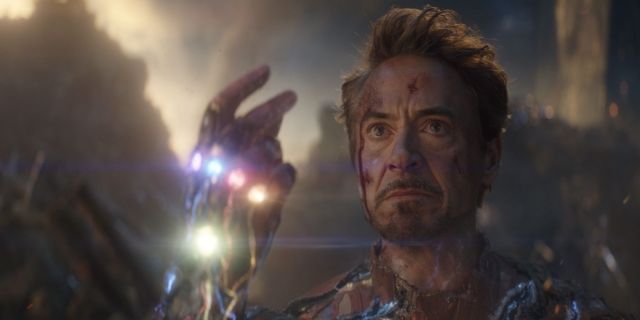Most empires die the same way. They don’t get defeated by a comparable power or toppled by forces within their midst. They grow themselves to death. Marvel is experiencing the pains of outgrowing its potential. A concept that stood as the underdog has moved past its golden era and into a new decline. Reaching into the past to save themselves would be a fatal mistake. Robert Downey Jr.’s Iron Man would be a sign of the end.
Ant-Man and the Wasp: Quantumania performed terribly by Marvel standards. Guardians of the Galaxy Vol. 3 was considerably more successful, thanks primarily to James Gunn’s reputation. The Marvels is almost here, and many predict disaster for the Captain Marvel sequel. The Marvel Cinematic Universe is struggling in the only metric they consider valid, and they’re becoming desperate.
RELATED: Two Avengers Actors Might Return To The MCU Despite Huge Issues
Robert Downey Jr.’s Iron Man Was a Risk
It’s difficult to understand how unsure studio execs were fifteen years ago. Superhero movies were a mixed bag. No comic book hero carried a guarantee of success. Batman, Superman, and other iconic names suffered box-office flops. Marvel Comics famously sold off film rights to most of their characters to escape bankruptcy in the 90s. This left them without the heavy hitters they believed could sell blockbusters. Studios are famously risk averse. That problem has only escalated since the 2000s, but no one was excited to drop hundreds of millions on an unsure title. Iron Man was a minor comic book character. His comics hit their sales peak in the 80s and declined sharply in the new millennium. While promoting his 2022 documentary, Sr., Robert Downey Jr. spoke with Chris Gardner at a Director’s Guild Q&A. He said this about Marvel’s faith in his first superhero project:
Well, I mean first of all, not too many people were thinking ‘Iron Man’ was going to have an opening weekend or do much of anything, so we were a little bit left alone… I find out more every day about how that thing was financed. It was basically ready to be written off if it tanked.
Paramount and Marvel saw it as a lost cause. Their fear pushed them to roll back supervision and allow the director, Jon Favreau, and the two writing teams to create the film they wanted. Marvel had to take risks when their domination was uncertain. Now, every decision is made with multiple layers of committee approval. Every new fact that comes out about their recent productions suggests a culture that disregards the will of the artists. From using AI to create title sequences to forcing VFX professionals to make last-minute changes, the studio has abandoned its early ethos. It bears repeating that Marvel only ever attempted a bold decision because it had no other options. They were on top of the world, and the nature of corporate filmmaking requires consistent growth. They have to beat their earlier performance. New characters aren’t reaching those peaks because they refuse to employ the work that made them successful, and they’ve introduced dozens more than they can handle. The only solution they can imagine is reaching back to the golden days.
Bringing Back Iron Man Would Be a Sad End For the MCU

Every time Marvel regresses instead of moving forward, more fans find an unfortunate truth. Projects like Loki and Guardians Vol 3 keep them engaged, but the evidence keeps mounting. Someday, everyone, including the hardcore fans, will be convinced Marvel has nothing new to offer. No decision would alert more people to that reality than bringing back the hero who started it all. The only acceptable path forward is introducing new heroes through the same ground-up process that gave the world The Avengers. Each callback, cameo, or returning favorite reduces the sand in the hourglass. When it runs out, the default viewer will see Marvel as it sees an aging rock band on its fifth farewell tour. That isn’t a reputation it can shake easily. These decisions matter on a franchise-wide scale. They’ve already lost countless casual fans. People regularly struggle to know why they enjoy something. Even if they ask to see Robert Downey Jr. put on the suit again, some part of them knows it would be a black mark on every Marvel project to follow.
IP holders famously fail to understand the appeal of their treasure. Corporations are obsessed with ownership and consistently furious to discover how integral artists are to their value. They spend millions to buy an asset without realizing it only matters because of its creators. The only way to speak to Marvel is in the language it understands. When they coax Robert Downey Jr. back with the GDP of a small nation, a few will applaud like they always do. Marvel Studios thinks it can keep people excited about the ideas that mattered fifteen years ago. The brand is what’s important to them. The same impulse almost made them kill Iron Man in 2008. The idea that people enjoy good films or new ideas never crossed their minds. Resisting this temptation is the only way to give the MCU empire a few more years.

MCU
The Marvel Cinematic Universe (MCU) is a sprawling movie and television franchise that weaves together individual stories of superheroes including Captain America, Thor, Spider-Man, Hulk, Black Widow, and many more. The first film in the franchise, Iron Man, was released in 2008. The MCU has garnered critical praise and financial success, earning billions at the box office and becoming a cultural phenomenon.











Leave a Reply